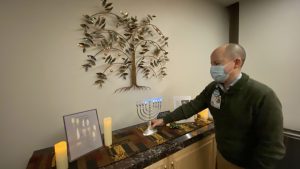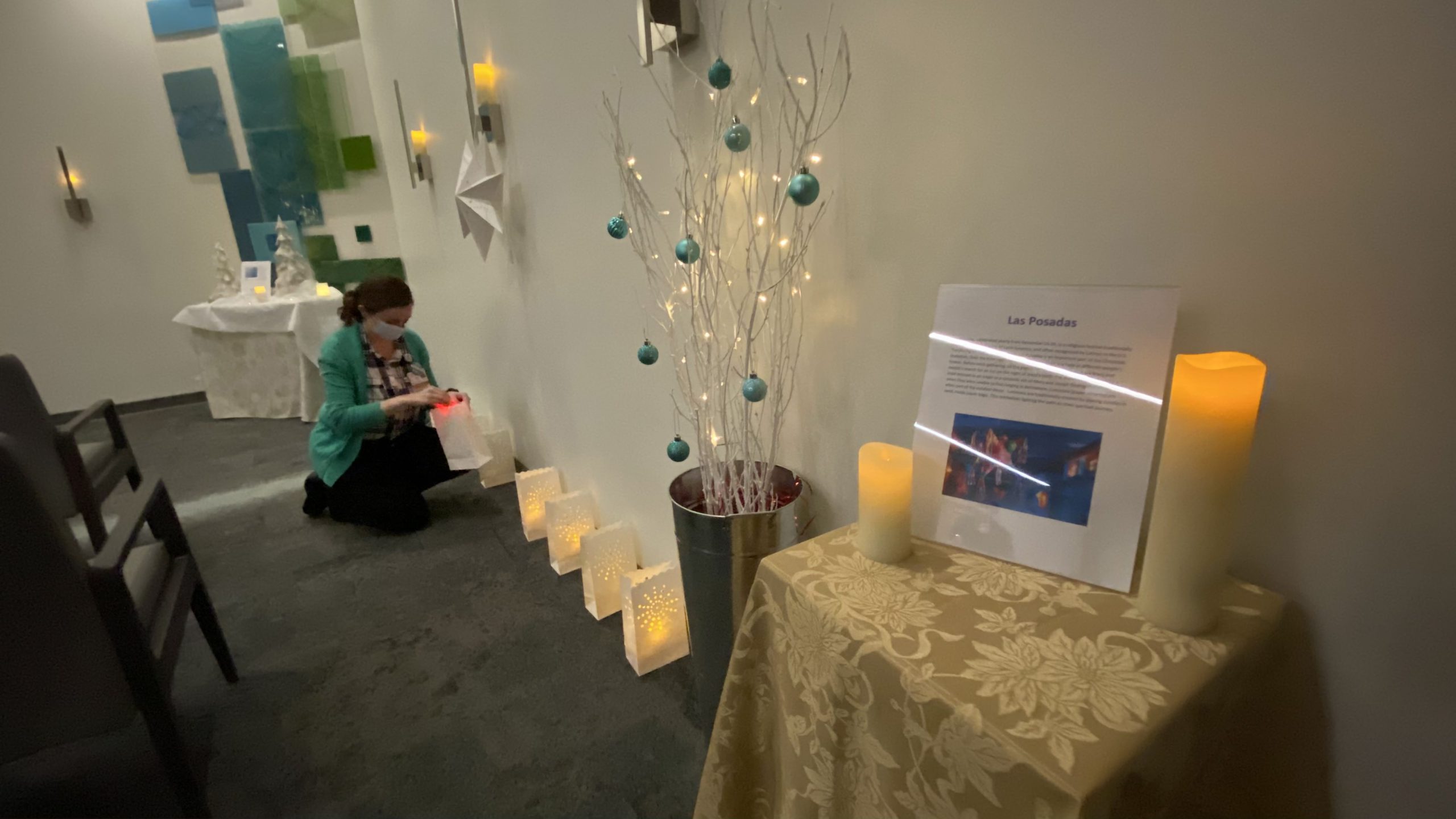“Health is a state of complete harmony of the body, mind and spirit. Faith and prayer are the vitamins of the soul.” – Mahalia Jackson, African American gospel singer
Although COVID-19 has changed how individuals and communities gather in places of worship and restoration, healthcare systems have continued to grow spiritual and faith-based programs. The goal is to help comfort patients and their caregivers during challenging moments—and the holidays can be an especially trying time in the hospital.
Chapels and meditation spaces perhaps come to mind first when thinking about spiritual care programs inside hospitals or care centers. However, it’s the people from chaplaincy services who can help patients, their families, as well as staff transcend any space to one of healing and comfort.
“Through conversations, active listening, silent witnessing, prayer and affirmation, chaplains help others navigate the pain of uncertainty and loss,” says LaVera Crawley, M.D., director of spiritual care services at California Pacific Medical Center in San Francisco. “These practices offer the opportunity to transform suffering into the source of our growth by helping us journey through it and find meaning from it.”

Chaplain Benjamin Curry lights the menorah recognizing Hanukkah inside the chapel and spiritual center inside Sutter Medical Center, Sacramento. December is known as the Season of Light as many faiths celebrate important observances during the month.
Chaplains are professional clinicians who seek to build a relationship of trust through compassionate presence, offering spiritual guidance to many. As representatives of religious traditions, chaplains inside healthcare settings may use the insights and principles of religion and theology where appropriate, when caring for others. For non-religious patients, chaplains draw from their knowledge and training in behavioral sciences to offer attentive listening and spiritual companionship for support.
“The challenge of illness can be frightening, but it can also become a vehicle for profound healing and awakening—physically, emotionally and spiritually,” says Gerald Jones, director of chaplain services and clinical pastoral education at Sutter Roseville Medical Center in Roseville, Calif. “We are here to support patients and their caregivers, whether to comfort them or celebrate their healing.”
Sutter Health’s network, for instance, provides patients access to more than 25 hospice chaplains and 40 staff chaplains assigned to inpatient settings. Sutter has also embraced non-pharmaceutical comfort from chaplains that include Reiki treatment for relaxation and comfort, healing hands/touch, and guided meditations for pain relief when appropriate. Additionally, it has integrated spiritual care into some of its specialty outpatient palliative care programs—something typically found only in hospitals or hospice.
“Specialized spiritual care is part of evidence-based total person care. As such, it addresses a person’s holistic concerns as well as treating spiritual pain or distress associated with serious illness,” says Reverend Charlotte Bear, a chaplain at Sutter’s Palo Alto Medical Foundation. “Spiritual care applies interventions that are intended to mitigate suffering and spiritual distress and to increase resilience and quality of life.”
An important characteristic of spiritual care is the openness and inclusivity for all people. Their intent is to help those of all races and ethnicities, sexual orientation, religious or non-religious affiliations and cultural backgrounds feel welcome. And at their purest essence, they help us not feel alone—an immeasurable gift during the holiday season or any day of the year.
CPMC Spiritual Care and Chaplaincy Services. Chaplains are available 24 hours a day, seven days a week. Chaplains can be reached at (415) 600-3741.
Mills Peninsula Medical Center Spiritual Care and Chaplaincy Services. The chaplain can be reached at (650) 431-5632.
Alta Bates Summit Spiritual Care and Chaplaincy Services. Chaplains are available 24 hours a day, seven days a week. To contact a chaplain at the Summit Campus (Oakland), call (510) 869-6784. To contact a chaplain at the Alta Bates or Herrick Campuses (Berkeley), call (510) 204-6730.
Palliative Care and Support Services (PCSS) at Sutter’s Palo Alto Medical Foundation. Provides patients and their families an extra layer of support for coping with a serious illness. Chaplain services are now also available in Sunnyvale and Santa Cruz, two of the seven locations throughout the Bay Area. Call (408) 730-2860.
Sutter Roseville Medical Center Chaplain Services. To contact the Director of Chaplain Services, call (916) 781-1147 or email jonesg@sutterhealth.org.
Spiritual Care Services at Sutter Medical Center, Sacramento. Call (916) 887-1222.





